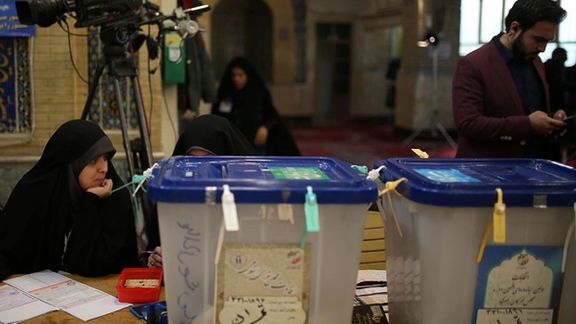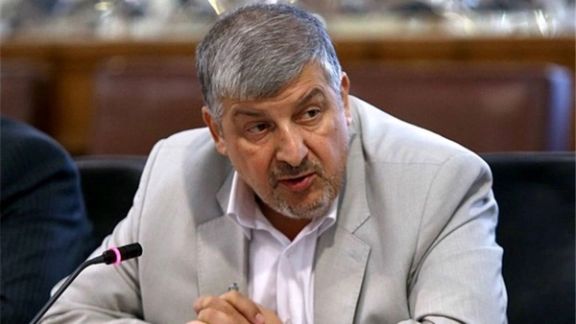Iranian Politicians Frustrated Over Political, Economic Situation

A relatively pragmatic politician in Iran has expressed concern that voters turning their backs on the Islamic Republic's elections is like poison for the political system.

A relatively pragmatic politician in Iran has expressed concern that voters turning their backs on the Islamic Republic's elections is like poison for the political system.
Mansour Haqiqatpour, a former lawmaker, local governor general and a former deputy commander of IRGC Quds Force, told the Khabar Online website that the policy of purification, which has effectively excluded all political groups other than hardliners from the government, has silenced key figures in both leading political factions, reformists, and conservatives.
Haqiqatpour said: "During the fasting month of Ramadan Supreme Ledaer Ali Khamenei called for a competitive, safe and secure election. More than 30 days have passed since he made the statement, but nobody has come up with a strategy to make that happen.”
Rhetorically he asked, "Who should do that? The Guardian Council? The state television? The Expediency Council? the Interior Ministry or the President's Office? The state TV has not discussed the issue even once."
However, it remains uncertain if Khamenei will allow all regime factions and politicians to run in the March 2024 parliamentary elections. The Guardian Council, under his supervision, disqualified most reformist and moderate candidates in the 2020 parliamentary and 2021 presidential elections.
Haqiqatpour continued, "We did not have a good turnout in the parliamentary elections of 2020 and the presidential elections of 2021."

He further expressed concern, saying, "It is a shame that the turnout in elections in Turkey is around 80 percent, and we in Iran have been facing turnout rates as low as 20 to 25 percent." He warned Iranian leaders that a failure to achieve a 60-percent turnout in next year’s elections would be a serious setback.
Politicians and sociologists have been saying since 2020 that a low turnout means that the regime lacks legitimacy and that its social support is in decline, while it claims to be a cradle of democracy in the region and a powerful state backed by its people.
President Ebrahim Raisi has recently said that it was clear based on polls before the 2021 election that he was going to win. Haqiqatpour pointed out that since major candidates such as former Speaker Ali Larijani were not allowed to run that surely made Raisi the only viable winner.
Asked about his way out of the political impasse, he said: "We should allow political competition,” and added that “unfortunately, rational individuals in both of the leading political factions are left out of political competition. Everyone including the moderates should be represented in the elections.
Haghighatpoor complained about the monopoly of power given to hardliners. "We should break the isolation created by hardliners. Left and right should cooperate,” and "Protesters should not be called the advocate of regime change. They just wanted their grievances to be heard.
In another development, Jalil Rahimi Jahanabadi, a member the National Security Committee of the parliament told Rouydad24 website in Tehran that "The country's economic situation is extremely bad." Jahanabadi warned the country's leaders: "The reality is different from what you see on TV. The people in the streets see the prices in the shops and they realize the realities when they put their hand in their pocket to make a payment."
Meanwhile, another Iranian lawmaker, Mohammad Reza Sabbaghian Bafghi highlighted the difference between the living standards of officials and the people. "Officials enjoy good food and live in good houses, but the people do not have enough money and they cannot afford paying their rent."
He further warned the officials that price rises are beyond what people can tolerate. Bafghi said in parliament on Sunday: "Three out of every four Iranians complain about the rising prices. The high cost of housing is backbreaking and when we go to our constituencies, we are ashamed before those who voted for us. " He added: "The President should be accountable for that."